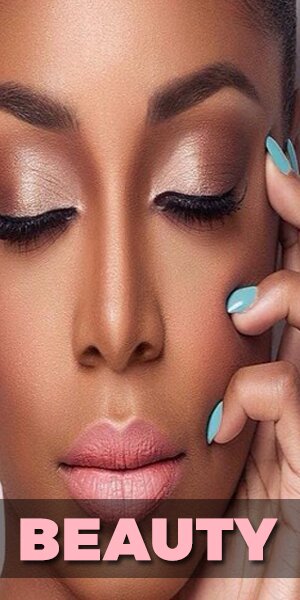Acne is among the most prevalent conditions of the skin. A total of 85% of the world population has suffered from acne at least once in their lifetime. Such prevalence has seen the upsurge of conventional alternatives of acne treatment. Although these methods may achieve adequate acne treatment, they are discouraged due to their high cost as well as associated side effects including irritation, dryness, and redness.
These factors have motivated many people to look for safer and cheaper alternatives to treat acne. This search has resulted in the popularity of natural remedies which can be relied upon to treat acne at home. There are many recommendations on the herbal management of acne, but the main dilemma here is whether natural remedies are truly viable in the treatment of acne. In this blog post, we shall share with you the top 5 herbal remedies for acne.
Causes of Acne
When oil and dead skin cells block the pores in your skin, acne starts to occur. How does that happen? Well, each pore in your skin connects to a sebaceous gland responsible for the secretion of sebum. The extra release of this oily substance leads to clogging of the pores. Clogging of the pores, in turn, triggers the growth acne-causing bacteria Propionibacterium acnes, often identified as P. acnes.
Naturally, your white blood cells will gang up against Propionibacterium acnes, a process which ends in inflammation of the skin, thereby triggering acne. While some acne cases are highly severe, the common acne symptoms are pimples, whiteheads, and blackheads.
Other than P. acnes, infections, hormonal imbalance, stress, diet, and genetics can also cause acne. Try out the following top 5 herbal remedies for acne improvement and treatment.
- Green Tea

We all know that drinking three or four cups of green tea has significant health effects as a result of its antioxidant-rich content. However, did you know that the same green tea can help you treat acne? Green tea has tannins and flavonoids which not only reduce inflammation but also fight bacteria to give you an acne-free skin.
Inflammation and bacteria are the most common causes of acne. Green tea contains the EGCG (epigallocatechin-3-gallate) antioxidant which is essential in the fight against Propionibacterium acnes, especially in individuals whose skin is vulnerable to acne. Multiple dermatological studies reveal that green tea extract with a two to three percent concentration on the affected skin can potentially reduce the levels of sebum production and limit the development of pimples.
It is recommended that you opt for homemade green tea extract or drink at the expense of conventional green tea lotions or creams which might trigger undesirable side effects like irritation or inflammation.
- Tea Tree Oil

You can obtain tea tree oil through the process of Australian tea tree leaf distillation. Traditionally, tea tree oil was applied in the treatment of skin conditions. It was also essential for skin cut and burn treatment. The healing power of this oil comes from terpenoids which are its active ingredients. Tepen-4-ol is the most abundant among such ingredients.
The terpenoids are known to give the oil its antimicrobial properties. This is the reason tea tree oil makes an effective acne treatment since it can all the acne-causing pathogens. This assertion has been supported by research; such is the study by the Royal Prince Alfred Hospital Dermatology Department in Australia in which a comparison between benzyl peroxide and tea tree oil was made to determine their effectiveness in acne treatment. In this study, it was justified that both remedies were effective in acne treatment. Further, while benzyl peroxide achieves far better acne treatment, it triggered more side effects including irritation and inflammation.
- Aloe Vera

Aloe is among the most popular herbal remedies for acnes. This remedy can either be topically applied or orally taken. If you suffer from acne, you are bound to benefit from this potent herbal remedy.
Research has shown that Aloe Vera can penetrate your skin layers to enhance the healing of scars left by acne, to soothe irritation, or to nourish your hair follicles. Aloe Vera can also fight and eliminate all pathogens which either trigger or worsen acne since it contains about six antiseptic agents for an enhanced antimicrobial skin cover.
- Gum Guggul

This potent acne remedy is extracted from Commiphora wightii, or simply, the Guggul plant. The health benefits of this plant are common with Ayurvedic medical practice, and its present uses cannot be underestimated. However, this flowering plant is currently listed as one of the endangered species.
Its healing power comes from its guggulsterone steroid. Tapped Guggul sap has received vast application in the treatment of digestive problems, oral infections, obesity, and skin conditions.
The steroid present in this sap is an essential element in the treatment of acne. The sap possesses potent anti-inflammatory properties; thus, the sap is critical in the prevention of swelling, scar formation, and acne nodule and cyst relief.
This herb is found in Actimine in large quantities. Actimine is a powerful herbal remedy mixture recommended for acne treatment.
- Extract from Olive Leaves

The history of olive leaf extract usage for medical reasons is traceable to ancient Greek civilization. Olive leaf extract is recommended for its antimicrobial and antioxidant properties. The benefits of olive leaf extract can be accessed through oral consumption. The extract will adequately perform its hormonal balance and body detoxification functions.
How do these functions then promote the treatment of acne? Well, the extract is known to normalize the production of significant hormones in the body, among them androgen. It also eliminates bacteria which triggers the occurrence of acne.
Note: Olive leaf extract might result in mild muscle aches, nausea, and headache. These are symptoms associated with the use of detoxification remedies.
Concluding Remarks
- Acne is a prevalent skin condition, and its underlying causes are many.
- Conventional acne treatments have shown desirable treatment outcomes. However, these alternatives are responsible for further irritation, dryness, or redness of the skin.
- There are numerous herbal remedies which achieve effective acne treatment.
- The home remedies shared above might fail to treat your acne. However, you will not know until you give each one of them a try.
- Should you develop severe acne, it is recommended that consult a qualified dermatologist.
About the author: Amelia is a writer/editor with an endless passion for bringing a lot of useful and trustworthy information to the community. She founded , a blog dedicated to sharing quality articles related to health, nutrition, fitness, and beauty. As a typical introvert, Amelia is a perfectionist in work. At times of leisure, she reads, listens to music, chats with some close friends and walks with her pet.
W| By Amelia Johnson @















